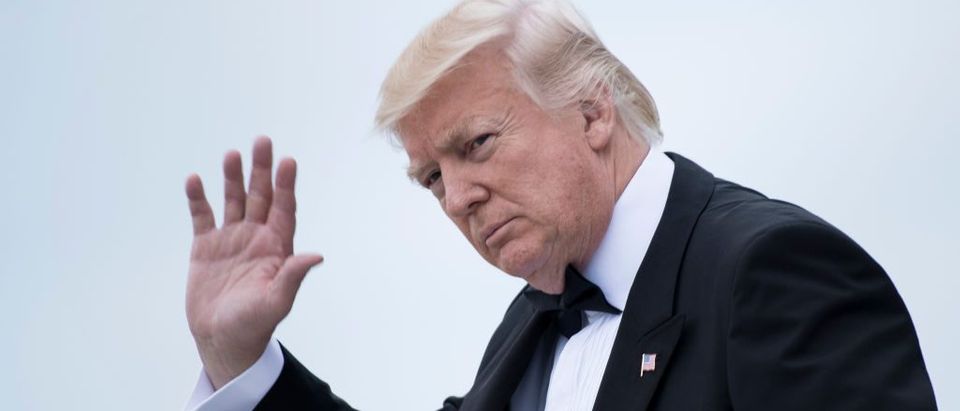The New York Times’ bombshell story alleging President Donald Trump asked former FBI Director James Comey to end the investigation of former National Security Advisor Michael Flynn reintroduced a Watergate-era word to the political lexicon: obstruction of justice.
Some Trump critics, including congressional Democrats, claimed Trump’s alleged statements constitute obstruction of justice — one of the articles of impeachment brought against President Richard Nixon.
“I hope you can see your way clear to letting this go, to letting Flynn go,” Trump allegedly said to Comey. “He is a good guy. I hope you can let this go.”
Democratic Sen. Chris Murphy said lawmakers were parsing the exact meaning of federal obstruction laws in the aftermath of the story.
There are at least two federal statutes that deal with obstruction of justice. 18 U.S.C.§ 1503 and 1505 each contain language criminalizing the obstruction of an official proceeding. Each of these sections contain somewhat ambiguous language, to afford prosecutors flexibility in bringing an obstruction charge.
The ambiguousness notwithstanding, it is unlikely that Trump’s alleged comments could serve as the basis of an obstruction prosecution.
Writing in The Hill, George Washington University Law School professor Jonathan Turley explains the only provisions of the federal obstruction law under which Trump could plausibly be charged is the omnibus sections of the above statutes, which address actions that interfere with the “administration of justice.” He argues that encouraging leniency for a former associate does not rise to the level of criminality within the meaning of the statute, as it does not constitute an attempt to secure an “unlawful benefit” for Flynn.
Furthermore, Turley says it’s not clear what exactly Trump obstructed. “Obstruction cases generally are built around judicial proceedings — not Oval Office meetings,” he notes. As of this writing, it does not appear that any judicial proceeding was underway in connection with the Flynn probe at the time of Trump’s meeting with Comey.
“[I]f this is food for obstruction of justice, it is still an awfully thin soup,” Turley wrote. “Indeed, it raises as many questions for Comey as it does Trump in terms of alleged underlying conduct.”
Flordia University College of Law professor Elizabeth Price Foley largely corroborates Turley’s analysis in The New York Times. Like Turley, Foley argues Trump’s words cannot definitively be construed in a criminal sense, and that there was no impending criminal proceeding they could have effected.
“Even putting aside the difficulty of proving, beyond a reasonable doubt, that President Trump’s brief and generalized words evinced the necessary ‘corrupt’ mind-set, Section 1510 applies only to a ‘pending proceeding,'” she wrote.
Absent a demonstration that Trump’s comments amount to an attempt to secure an unlawful benefit for Trump, and that his comments obstructed a judicial proceeding, it would be difficult to bring a charge against the president.
None of this exonerates Trump from questions of ethics and impropriety. Trump’s statements to Comey may be wildly inappropriate, but it’s not clear that they are illegal.
Send tips to kevin@dailycallernewsfoundation.org.
All content created by the Daily Caller News Foundation, an independent and nonpartisan newswire service, is available without charge to any legitimate news publisher that can provide a large audience. All republished articles must include our logo, our reporter’s byline and their DCNF affiliation. For any questions about our guidelines or partnering with us, please contact licensing@dailycallernewsfoundation.org.


